Feeling Young In My 70s – Gary Vicari’s Story
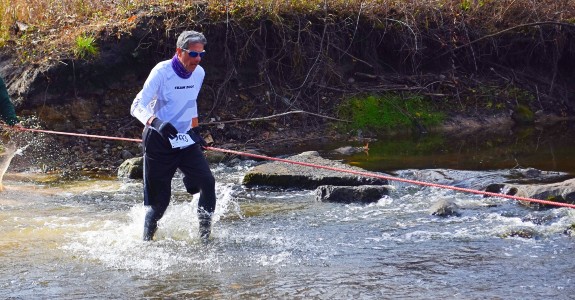
Most people in their 70s, 80s, and beyond who continue to compete in triathlon feel younger physically and mentally compared to their peers. Gary Vicari’s goal is to keep pushing himself to higher levels, balancing his needs as an older athlete with the belief that “you’re only as old as you feel”,
Who is Gary Vicari?
Gary describes himself as “a stubborn, gracefully aging warrior, fighting all the challenges of a family man trying to maintain his health while managing his large, family-owned business.”
His family includes Amy, his wife of 35 years, three children, and a five-month-old grandchild. The family business is Arlington Toyota in suburban Chicago, Illinois.
“At 70 years old, I am gratified and blessed to be able to fully participate in all areas which I spend my time – family, business, and training for and competing in age group races. Owning a successful business that runs smoothly affords me the ability to devote some of my energies toward activities that promote a lifestyle I hope will allow me to perform and enjoy well in to the future.”
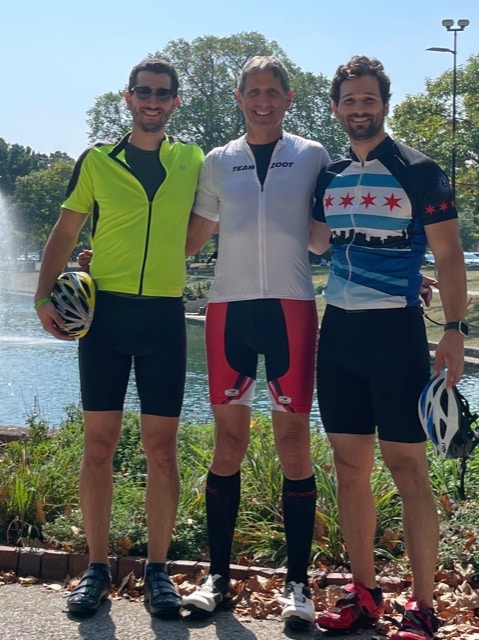
Active in Sports as a Youth and in College
During his high school years, Gary competed on the football, swimming (in diving) and track (in pole vaulting) teams. A diving accident during his sophomore year, and a physically abusive track coach that “sucker-punched me in the solar plexus at an invitational track meet” caused him to leave both teams and these sports.
A fractured neck from a spear tackle during Gary’s junior year in high school ended his participation in football.
“l tried to walk-on for the University of Colorado track and field team. However, I was outclassed by those with scholarships, the best recruits from high school. I left the team, content to continue with intermural athletic activities, which included the quirky fraternity broomball league.
“During my senior year, I had my first experience related to triathlon. In 1976, the University of Colorado hosted SUPERSTAR II. The contest involved athletes choosing to compete in eight of ten events. Choices included a 60 yard dash, field goal kicking, softball throw, a half mile run, a 50 yard swim, basketball free throw, bench press, ice skating an obstacle course, and bowling.
“I entered the ‘decathlon’ on a lark, and won the Open Division. My first place finish in swimming was combined with second and third places in the other seven of my events. When all points were totaled, I was happy to learn that being good at many events was better than being outstanding in one event but mediocre or weak in others.
“Ironically, that characteristic of multi-sport competition sparked my interest in multi-sport endurance events.”
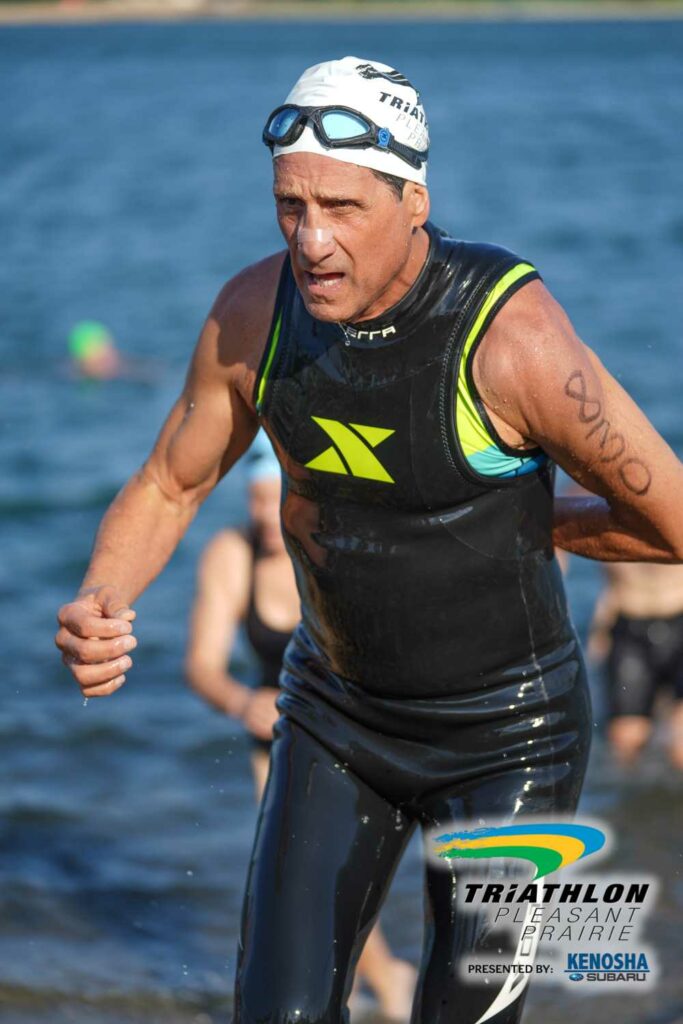
Gary Vicari’s Early Triathlon Career
“My first foray into triathlon was on a three-man team comprised of business associates. The event, a triathlon with a one mile swim, 50 mile bike, and 12 mile run, was held in Baja California (Mexico) on October 16, 1982. This was the first time they held this race, which was riding the upstart popularity of triathlons in Hawaii and San Diego.
“I took the one mile swim leg. This turned out to be the longest open water swim for me to date. The swim seemed even longer, in part because of a pre-race joke about there being sharks in the water made by at least one swimmer. Our team finished 9th. I was just satisfied we all made it home alive.”
First Solo Triathlon
“Then, on June 26, 1983, I did my first solo triathlon. This involved a one mile swim, 28 mile bike, and 8 mile run on Coronado Island in San Diego, California.
“Mark Allen and Mark Montgomery, two of the world’s top triathletes, battled it out for first and second place in a grossly mismanaged race. The Running News headline for coverage of this race read ‘They Were Running With No End In Sight!’
“I missed the turnaround, as did many athletes, and hit the wall at around mile seven. The next three unexpected miles were pure torture, as running was my weakest event. Runners over twice my age passed me as I walked back to the finish line, with only a dozen stragglers behind me. This was quite the humbling and embarrassing experience. It would haunt me for many years, as I quite consistently finished triathlons in the bottom half of the field.”
Except for the New York City biathlons in 1986 and 1987, Gary finished in the middle of the pack, unacceptable for him.
Between his late 20s until his 60s, Gary chose to focus on his family and career. Competitive athletics were a low priority. He put his triathlon career on hold, temporarily.
Resuming Triathlon
Gary did not pursue triathlons again until 2008, even though the sport was always in the back of his mind.
“Triathlons allowed me to resume my interest in swimming, not diving, and track that had been cut short in high school.”
In August, 2008, Gary entered the Bangs Lake aquabike race. The event consisted of a 1.5 km (0.93 mile) swim followed by a 23.5 mile (37,8 km) bike ride. Much to his displeasure, he placed 18th out of 20.
Four years later, at age 55, he entered a mini-sprint triathlon. “From that race, I realized my aerobic conditioning was terrible.”
Despite the disappointing results, he stuck with it. Gary entered one or two triathlons a year. With consistent training, his performance gradually improved to place around the middle of the pack.
“Although my performance wasn’t award winning, the excitement of triathlons, the competition, and the hope that I would improve motivated me to continue.”
In 2012, Gary earned an invitation from USA Triathlon to the National Age Group Championships in Milwaukee, Wisconsin.
“Although I placed 44th of 51 in my age category (M60-64), the enormity and grandeur of the event was inspiring. It prompted me to sign on with a coach to help me improve beyond the middle or back of the pack.
“I entered the Lifetime Tri Sprint held in Chicago on August 25, 2013. With the help of my first coach, I finished 624th of 2286 overall and 10th out of 49 in the M60-64 age group. Wow! Never knew I had it in me!”
“The Triathlon I Will Always Remember”
“The triathlons in which I have won or made it to the podium in my age group bring fond memories. However, the one that I will never forget was the TriRock in Lake Geneva, Wisconsin on September 13, 2014. Though physically prepared, I didn’t properly assess the weather conditions, an air temperature of 40 degrees with rain.
“I was out of the water 3rd in my age group. I went racing off with only my tri suit on. Other, smarter racers donned long sleeves, cycling leggings and other protective clothing. I naively thought that by going fast, my body would warm up and take me to T2 and on to the run. Nope!
“While on the bike, I slowly approached hypothermia. Upon entering transition, I went into full hypothermic freeze. A coveted spot in the medical tent where I was encased in a thermal body bag with heaters blowing hot air through hoses to raise my body temperature became the third event in my triathlon. About 15 minutes later, I recovered, and they discharged me from the medical tent.
“The valuable lesson I learned from ‘the triathlon I will always remember’ is that triathlon has many, constantly changing variables. Ignoring or dismissing any of the warning signs during a race or training can have disastrous consequences.
“From that race to today, whether I am training or on a race course, I remind myself to assess the risks and adjust accordingly.”
Related Post: In 101 Triathlons – John Dean’s Story, John described his experience with hypothermia during a triathlon.
Experience of Training With and Without a Coach
From 1983 until 2013, Gary said “I was either untrained or self-trained and not very competitive. Finishing in the middle of the pack was my aspiration. I thought others who took the time to get serious about competing or were just plain genetically superior took all the glory and medals.”
In 2013, Chris Wiatr, a 20 year old college student and accomplished triathlete, came to work at Gary’s business.
“I learned that Chris was very successful at local triathlons, his father was a respected European cyclist, and he was interested in coaching me. For two years, he wrote workout plans and gave me tips for improvement. He got me on the right track.
“Though Chris was not a certified or trained coach, he opened up a new way for me to look at my triathlon performance. Coaching definitely helped.
“When I returned to self-training using local triathlon (YMCA Y-Tri), swimming, cycling, and running clubs, the results were, in hindsight, predictable. I went back to a middle of the pack finisher or worse.”
A New Coach
“My goal was to feel the exhilaration that came with winning or at least getting on the podium in races with others in my age group. So, I signed up with coach Jennifer Harrison to regain some above average performance.
“Within months, I saw improvements from her structure, accountability, encouragement, and the verbal and video assessments of my form. For two years, Jennifer coached me. I was able to win, place, or show in my age group at local races some of the time.
“After being invited to the USA Triathlon Nationals, I was hooked on competitive amateur triathlons.
“Thinking that I could achieve results for less money than with an in-person coach, I signed up for a remote triathlon coach through Training Peaks. I had some success, but it was less than I had had with Jennifer’s in-person coaching.
“Injuries and surgeries sidelined me in late 2016 through 2017. I returned to amateur competition in pretty questionable shape.
“This year, I began coaching with Matt Peterson at The Fitness Pursuit in Grayslake, Illinois. Matt is a certified coach with a degree in sports physiology. He is also an accomplished, ranked USA Triathlon competitor.
“As before, the structure, accountability, and accessibility of a personal coach is producing results. The only hindrance to steady progress is the occasional injury.
“What I have learned is that a coach brings out the best in me. I must often train by myself because of my schedule. My coach acts as the little birdie on my shoulder, constantly reminding me what I need to do.”
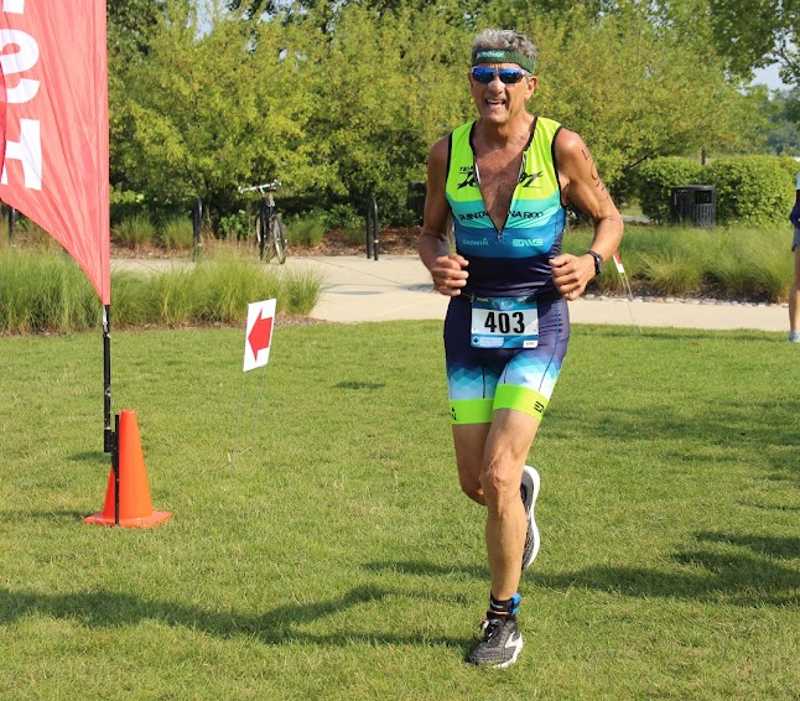
Training Throughout the Year
For Gary, each calendar year begins with building a base of fitness. This continues until sometime in May, after which the intensity of workouts increases.
Once the racing season in Illinois and Wisconsin begins, his training schedule depends on the date of his next race.
On weekdays before a Sprint or Olympic distance race, Gary reduces the intensity of his training. For a Sunday race, training on Thursday and Friday involves progressively lower stress. Training on Saturday is “very easy with either a short swim at the race venue to get acclimated to the course, or rest”.
“As a senior athlete, I require more time to recover from workouts. Hammering it the entire week before an event would likely deplete my reserves, causing a sub-par performance on race day.”
Typical Week’s Schedule
Gary’s coach provides the detailed training plan from information from his Garmin watch and his qualitative feedback. However, in general, training during a typical week is:
- Monday – Rest
- Tuesday: Swim and Run; full body strength workout and stretching
- Wednesday: Cycle
- Thursday: Swim and Run
- Friday: Cycle and Weights
- Saturday: Long Run
- Sunday: Long Cycle
Cross-Training
Gary supplements the activities listed above with strength training using stretch bands and TRX, an occasional yoga class, and “plenty of walking to keep moving and calm the soul”.
Other forms of cross-training are unnecessary. Alternating swimming, cycling, and running is enough to give relief when one muscle area needs more rest.
Lessons From One Who Uses Triathlon To Feel Young
What are the most important lessons Gary has learned while training for and competing in triathlon?
About Training
Gary says “A formal, progressively more intense seasonal training regime has produced the best results for me. However, this must include flexibility to substitute planned workouts with others when ‘life happens’. Some flexibility is key to maintaining a positive mental attitude and avoiding getting discouraged or feeling guilty about missing a workout.
“Triathlon is an endurance sport. To persevere and enjoy the journey is just as important to me now as are the results. Avoiding setbacks, such as injuries, is another reason that I give myself some leeway from a strict regime, though I do my best to adhere to the training plans set forth by my coach.
Gary has also learned that working to improve a skill or ability can change one’s perspective on it.
“For decades, I dreaded the run and favored the swim. Now cycling is my favorite leg of the triathlon. Since concentrating on improving my run, it’s no longer my least favorite leg. Ironically, while I enjoy swimming immensely outside of competition, the swim during a triathlon is my least favorite leg. Swimming in a competition can quickly aggravate old injuries.”
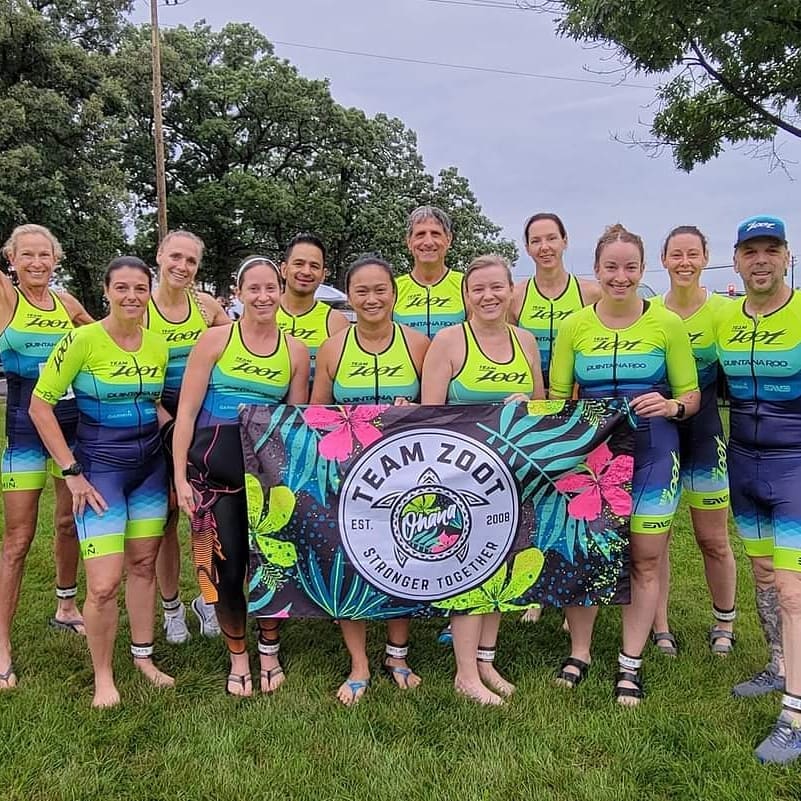
About Nutrition
“My current coach is urging me to improve my choices in nutrition, minimizing breakfast cereals and other simple carbohydrates, sugar and other empty calories. He wants me to replace these with more vegetables and protein, including 30 or more grams of protein at each meal.”
About Rest & Recovery
“Rest and recovery are a necessary part of training. As much as I dislike a pause in training or competing, trying to ‘tough through’ has prolonged the agony and done way more harm than good. Rest and the resulting recovery of this senior athlete is just as important as training.”
About Racing
“I consider racing an extension of my training regime. By entering races, I set self-imposed timelines and deadlines for accomplishing levels of conditioning and readiness. Races are as much a means to an end as they are a destination. Racing confirms my efforts in a comparative way, against the same in my age group. It also brings me back to fond memories of high school swim or track and field meets.”
Even before the 2023 season began, Gary had already identified twelve (12) races in which he would compete. These included a mix of Olympic and sprint triathlons, running, and bike races. He has left open the possibility for an Ironman 70.3, as well.
Advice for Those Thinking About Their First Triathlon
“When I first started in the sport, triathlon gave me a chance to resume the interests in swimming and track that were cut short in high school. As I have continued, the greatest benefits of triathlon are in a two-way tie. There is the feeling of living a healthy lifestyle. Right along with this is the feeling I get when I see quantifiable improvements in my physical and mental well being.
Approached correctly, triathlon can benefit many others who are considering doing their first triathlon.
“Triathlon is a very inviting and forgiving sport to enter at any age, given the person goes at it in a sensible, progressively more intense way. Charging full speed ahead can lead to hitting the wall, getting discouraged, and dropping out due to injury or mental fatigue.
“A person over 50 who just wants to enjoy the triathlon experience without preparing for serious competition can enter super sprints or sprints to ‘dip his or her feet in the water’. It may lead to more, or not.
“Athletes with prior competitive experience will find that triathlon can test their upper limits at all distances. And I know plenty of wannabes who caught the triathlon fever. Even with little prior experience in any of the three disciplines, they could train to a level at which they became comfortable and confident with their performance.”
The Future of Training and Racing for Gary Vicari
At present, Gary’s top goal is to make it through the 2023 season injury free. A second, slightly longer term goal is to complete a half Ironman triathlon (IM70.3). As we saw earlier, this is a possibility for 2023.
Once he has reached these goals, he is considering ‘raising the bar’ to a full Ironman.
Why? “Because I want to keep challenging myself to reach for my limits, without pushing myself to the breaking point.”
What are the Main Challenges?
Gary has obviously thought about what it will take to reach these new goals.
First, is time for training. “To go for the longer endurance event distances requires training times that are tough for me to balance while operating a large business and sustaining a happy family life.”
Second, Gary has developed plans for treating health issues if and when they arise.
“I’ve assembled a good network of coaches, doctors, a sports performance chiropractor, and a massage therapist. I believe I can rely on them to be there as needed to restore me to competitive condition.
“As I age, there are more issues that surprise me. The challenge is to address them and then continue.”
Finally, Gary recognizes that most of his peers, friends and relatives have already abandoned active, competitive sports.
“As a 70+ multisport athlete, it can be lonely at get togethers. I have different interests than most others my age. To combat the tendency to go with the flow, I concentrate on being active in groups that are active. That usually means being with younger, sometimes much younger, amateur athletes. I like to rely on my experience and judgement to integrate with the youngsters.”
“Being with various ages of people reminds me that “you’re only as old as you feel.”
Does Triathlon Help You Feel Young?
What are triathlon’s greatest benefit for you? Or, if not yet involved, what would you like to get from triathlon or other multi-sport endurance training and racing?
Please share your thoughts and any questions for Gary in the Comments section below.
Comments: Please note that I review all comments before they are posted. You will be notified by email when your comment is approved. Even if you do not submit a comment, you may subscribe to be notified when a comment is published.
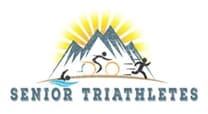
I am always inspired by all that you do and can only hope I am in as good of shape as you are at your age. You will do VERY well this year! I know for sure you bike is going to smash people … I speak from experience!!!
He is such a beacon…it is humbling to read his journey…never ever quit..